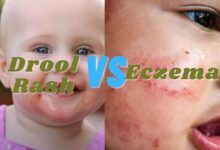Why Is Retinol Bad While Breastfeeding?

Breastfeeding moms who suffer from Acne, dark spots, and other skin difficulties. Therefore they go after skincare products that reduce wrinkles and help rejuvenate their skin.
Retinol can help women with Acne, wrinkles problem, but doing so shouldn’t be at the detriment of their babies. With that, mothers need to know why is retinol bad while breastfeeding.
For safety, breastfeeding mom should not use topical retinoids or any skin products that have retinol. Most doctors warn that breastfeeding mothers can passed on the harmful effects of retinol to their babies through their breast-milk.
The challenges that come with breastfeeding or pregnancy can be overwhelming and may not give you the needed time to take care of yourself. But, using topical retinoids and retinol won’t help either.
To guarantee your baby’s safety, there are skincare products safe for breastfeeding moms you can use.
Table of Contents
Why Is Retinol Bad While Breastfeeding or During Pregnant
Using topical retinol for a beauty regime WHILE breastfeeding may affect your baby and also your sensitive skin during pregnancy. Here are some facts.
Why Is Retinol Bad during Pregnancy
Applying skincare products with retinol has some effect during pregnancy. For precautionary measure, pregnant women or those trying to conceive should stop the use of topical retinol as high doses of retinol is believed to penetrate the skin into the bloodstream to cause a birth defect.
The European Medical Agency, “said their review shows that oral retinoids can harm an unborn child. So, expecting mothers must stop its usage during pregnancy. Furthermore, oral isotretinoin, retinoids, and acitretin used in treating some skin conditions must be used in line with the new pregnancy prevention program”.
Hey, don’t feel defeated! You can still look good, radiant, and beautiful even if you don’t use these skincare products that contain retinol as their active ingredients.
Why Is Retinol Bad While Breastfeeding

Medical experts have warned breastfeeding moms to stop the use of topical retinoids and retinol for precautionary purposes.
The amount of retinol absorbed from the skin during the topical application is very low; however, they can cause harm too.
Furthermore, retinol is poorly absorbed after topical application. This retinol may be harsh on your baby’s sensitive skin as there is a mother to baby skin contact.
How long does Retinol Stay in Your System?
Taking oral retinoids for treating skin conditions can be classified as a medication. Retinoids or any other drugs do get into breast milk through the breastfeeding mother’s blood circulation.
The amount of medication discharged in a mother‘s milk is typically in the range of 1 to 2 percent of the sum of drug-taking by the mother.
Therefore, a doctor must consider the risk factor of exposing the baby to the drug or the dangers of not breastfeeding against the advantages of the medication to the mother.
If it is mandatory to take an oral prescription while breastfeeding, the best approach is to breastfeed your baby before taking the drug, with this, there will be a little amount of medication in the mother’s blood at the time of breastfeeding.
What Skincare Ingredients to Avoid While Breastfeeding?
1# Benzoyl Peroxide
When fighting acne, clearing pores, and exfoliating dead skin cells these ingredients have become the gold standard. However, hydroxy acids and benzoyl peroxide are generally not recommended for hypersensitive skin and are not recommended.
Some nursing moms will practically experience extra sensitivity to everything. Therefore, this is bad news for them and those with skin injuries or defects!
2# Salicylic Acid and BHA – salicylic acid while breastfeeding
Salicylic acid is believed to cause a defect to the fetus in the worm when taken in a high dose. Some topical acne-fighting products have about 2% of salicylic acid and may seem safe for a child.
However, dermatologists still recommend keeping away from them as high doses appeared to cause birth defects and pregnancy complications.
Beta hydroxy acid (BHA) listed as an ingredient to some skincare and health products has shown complications in pregnancy.
3# Retinoid – retinol breastfeeding
Retinoids are good anti-acne substance for some women; it helps in acne treatment and line removal from the face. Retinoid comes in different form namely;
A. Tretinoin
There is minimal absorption of tretinoin containing Retin-A drug via topical sources as cited by (Hales Medications and Mothers Milk: 2019). Topical tretinoin belongs to category L3 of lactation risk or is considered fairly safe for breastfeeding.
The FDA, further advised that nursing mothers should avoid using a tretinoin cream called Renova (with 0.02 percent tretinoin) because it is not clear if this drug finds its way into human-milk.
B. Isotretinoin
For treating severe acne isotretinoin called Absorica is used. Mothers who are breastfeeding should not use the drug during nursing and up to a month after treatment is complete, as it is strongly advised against.
C. Retinol
Retinol is a less effective prescription-strength to a retinoid that falls within the category of non-prescription retinoids. Creams and serums that are formulated to reduce fine lines, dark spots, and wrinkles widely contain retinol.
The risk of it getting into breast milk is low, however, it is advisable to avoid retinol-containing products when breastfeeding your baby.
4# Essential oils
Essential oils are highly concentrated substances extracted from plants. It is therapeutic, good for your skin when moderately used. However, higher doses are detrimental to your baby’s safety.
5# Chemical sunscreens
When you need safer sunscreens pick an all-natural option that does not penetrate the skin. A mineral-based sunscreen with zinc is a safer alternative ingredient because it provides a physical barrier against the sun.
I hope you have understood why is retinol bad while breastfeeding. When it comes to breastfeeding, there are many friendly skincare products available. Do your research or read my best skincare products safe for breastfeeding moms.
Like this article? I would be happy if you share or pin it for some other time. You can also stay in touch and follow us on Facebook, or Pinterest
DISCLAIMER – The information on this post is for educational purposes only and should not be construed as a substitute for advice from a medical professional or health care provider.
ALSO READ







